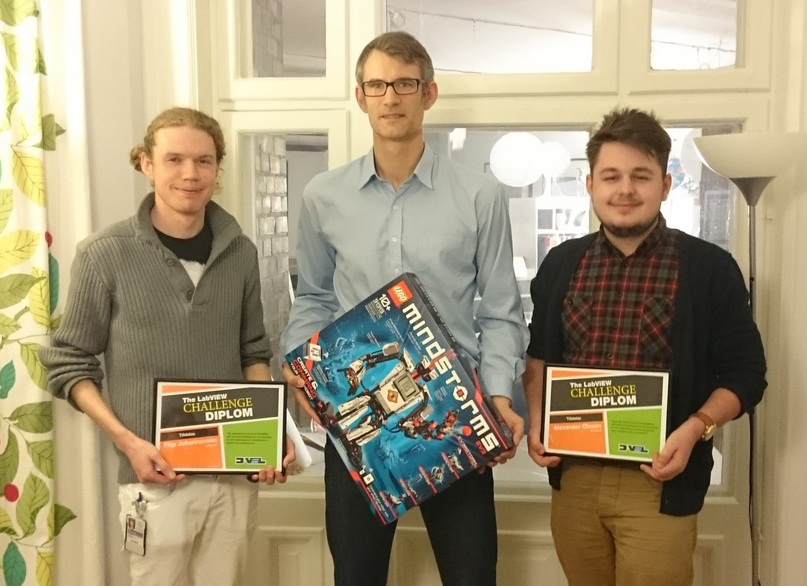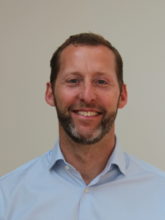
The Student LabVIEW Coding Challenge 2015 – 2nd Edition is finished. A winner and a runner-up has been chosen among the contestants.
The Student LabVIEW Coding Challenge is an annual competition for students at Swedish universities and colleges which is run for the third time. The students are asked to create a system in LabVIEW based on a specification. All submissions to the competition gets a written review from a senior LabVIEW consultant at DVel, and a winner and runner-up is chosen and invited to present their solutions at one of DVels reoccurring competence meetings where we gather for some show-and-tell of our recent projects or experiments.
The task was once again to develop a Whistle Star game. Whistle the first notes of “Twinkle Twinkle Little Star” to the computer, sample using the sound card, transform and score depending on how well you hit the right frequencies (the specification can be found at here for a while longer for those who are interested). This has proven to be an excellent exercise in LabVIEW programming. Many aspects may come into play such as modularization and abstraction, sampling times, parallel processes and user experience at the same time as you can solve the problem without caring too much about these things.
The winner of the SLVCC 2015 2nd Edition is Alexander Olsson. His solution had a good focus on user experience achieved both through a good user interface and software design providing mechanisms to support this. He had also used a design that gave possibilities of extending the program for other tunes. Alexander is studying Applied Physics at Lund University and was awarded a Lego Mindstorms kit.
Runner-up is Filip Johannesson. Filip’s solution, in addition to being well functioning, was well modularized and and could easily be extended. Filip is also studying Applied Physics at Lund University and was awarded a go at the Certified LabVIEW Associate Developer (CLAD) exam courtesy of National Instruments.
The fact that both winner and runner-up are from Lund University comes from DVel’s collaboration with the faculty of engineering there. Each year we give a lecture about LabVIEW there, and this year the SLVCC task was one of the assignments for the course in computerized measurement systems. If you want to use the specification in any (non-profit) way feel free to do so, but please give DVel credit.
DVel would like to congratulate Alexander and Filip to a job well done, and thank all contestants for participating in the competition. Good work, all of you. We would also like to thank National Instruments for sponsoring the CLAD prize.
By Martin Peeker

Riki Virc
VD
